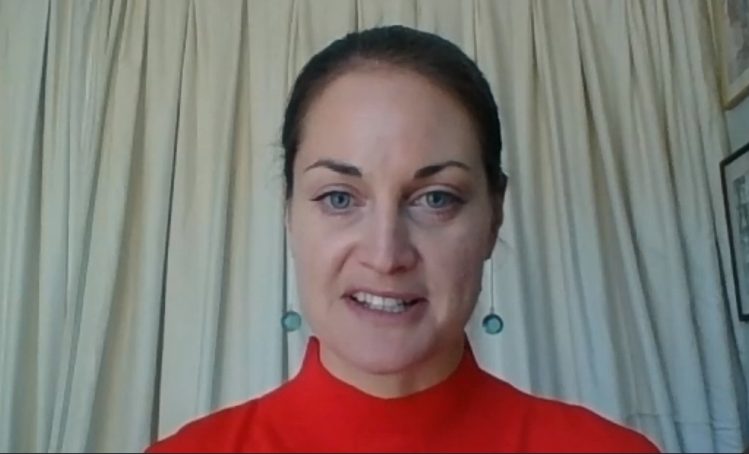Event Summary
PRS Pipeline: Impact & Opportunities | Video + summary
At Place North West’s latest event, experts from the region’s private rented sector discussed possible changes in the development of PRS projects in future as residents’ needs shift on the back of the Covid-19 pandemic.
The event on Wednesday 24 June was sponsored by developer ForLiving, law firm DAC Beachcroft and ClearFibre by technology firm Telcom, and attracted almost 300 live viewers on Zoom.
Place North West editor Sarah Townsend hosted the discussion with a panel of professionals representing a range of disciplines across the sector:
- Legal – Gemma Leonard, partner and head of residential development, DAC Beachcroft
- Development – Paul Gerrard, director, ForLiving
- Property management – Sibel Osman, head of PRS, Rendall & Rittner
- Design – Stephen Quinlan, managing partner, Denton Corker Marshall
- Investment – Tom Sinclair, Manchester residential investment director, CBRE
Key questions:
- What does the future look like for PRS post-Covid-19?
- What design changes will be implemented in the future to cater for changing demand?
- What impact has the pandemic had on the availability of PRS development finance?
Main takeaways:
- The PRS market is stable and will continue to grow post Covid-19
- There will be more of a focus on providing co-working and outdoor spaces in developments
- Bank funding will be harder to access, but institutional funders will continue to invest in the right projects.
- Paul Gerrard, ForLiving
- Sibel Osman, Rendall & Rittner
- Stephen Quinlan, Denton Corker Marshall
- Gemma Leonard, DAC Beachcroft
- Sarah Townsend, Place North West
- Tom Sinclair, CBRE
CBRE’s Tom Sinclair said he was optimistic about the state of the PRS market amid Covid-19 and said institutional funds had collected around 95% of residential rents due – a significantly better return than that generated by commercial landlords.
Investment would continue in PRS in the months ahead due to the “resilience” of the market, he added. Around 7,000 apartments are predicted to be delivered across Manchester in 2020, Sinclair added.
The key to continued growth is developers being able to offer different products to different renters. In particular, Manchester’s strength in terms of attracting businesses to relocate or expand into the city is its ability to provide accommodation for a broad tenant demographic, Sinclair added.
On funding, Sinclair said: “If you’re looking to find an institutional funding partner, like Legal & General, there are still opportunities but development finance from banks is becoming harder to get.”
He said this is due to “increased due diligence” by banks, which makes it more difficult for some developers to access funding.
ForLiving’s Paul Gerrard gave an update on his firm’s Dock 5, a 394-apartment scheme in Salford that is progressing ahead of schedule despite constraints on construction firms amid Covid-19.
He admitted his firm is likely to make changes in terms of the design and amenity offer at Dock 5 to appeal to residents.
For example, the planned cinema, restaurant and gym in the block could be swapped for a co-working lounge so residents can more easily work from home.
Gerrard added that discussions were ongoing about redesigning the internal courtyard at Dock 5 to provide more outdoor space for residents. “It is an exciting piece of work and it is important we get it right for our customers,” he said.
With the first units available from December next year, Gerrard said there has already been interest in the properties, mainly from young professionals. He said he had not noticed a marked change in the type of end user interested in PRS accommodation as a result of the pandemic.
DAC Beachcroft’s Gemma Leonard said there had been “major disruption” across the property sector as a result of the pandemic but that PRS – “while not operating at normal levels” – is performing better than other segments of the industry.
Demand is holding up despite lower levels of transactional activity, but the lack of sales and funding deals is affecting valuations. “How do you value things when there is no or little transactional evidence and you are basing those valuations on things that might change?” she asked.
The sector has come through the initial four-week “crisis moment” and Leonard said there is evidence that PRS is about to “fly”.
The pressure on housebuilders to “restore sales rates and de-risk pipelines” post-Covid-19 will likely result in a “flow of sales” of portfolio blocks of flats and single-family houses being offered to PRS operators by developers.
“That is what kickstarted PRS after the last financial crisis,” Leonard explained.
Denton Corker Marshall’s Stephen Quinlan said that rising demand for PRS has meant that several schemes initially designed for another purpose have been repurposed into PRS properties in later stages of the planning and development process.
By building greater flexibility into schemes, projects can be redesigned “without too much pain” to accommodate a different type of development.
“The market is changing and it is variable and we are not quite sure where it is going to end up,” Quinlan said.
The speed at which a vaccine is found will ultimately determine how drastic potential PRS design changes will have to be, he added.
“It is early days. We are still wondering how deep [and long-lasting] the pandemic problem will be. If we have a vaccine by Christmas that will lead us in one direction and if, come next spring, we have decided we need to get our head around living with an ongoing virus in the community, that will lead to all kinds of different things.”
If the latter, there is a “massive range of things” that must be considered to incorporate “in-building” defences against viruses, for example the installation of metal films – which kill viruses more quickly – on surfaces such as door handles, Quinlan said.
He added that automation could play a role in adapting apartment buildings post-Covid, including the use of voice-activated lifts to so residents do not have to touch buttons, and smartphone technology to unlock doors.
Providing more working lounge space elsewhere in the building could also be a “positive development” to give residents more space to work from home, he said.
Rendall & Rittner’s Sibel Osman said there is “no doubt” that developers will incur additional property management costs as a result of Covid-19, and rents could rise as a result.
Her company is already in talks with several developers of pipeline sites over how to improve living conditions for residents in the future. One suggestion that came up, Osman said, was crèches within residential buildings to provide on-site childcare for parents working from home.
“How that pans out will be interesting – it is certainly a consideration,” she said.
Osman added that the biggest challenge for Rendall & Rittner during the pandemic was the initial mobilising of various safety measures across the 800 sites the company manages at the start of the lockdown.
Amenity spaces and shared areas within buildings were closed and Osman said reconfiguring these areas could in future give residents the reassurance they need to share spaces and remain compliant with Government guidance.
The provision of outdoor space, while always important, is more so than ever before, the panellists agreed.











